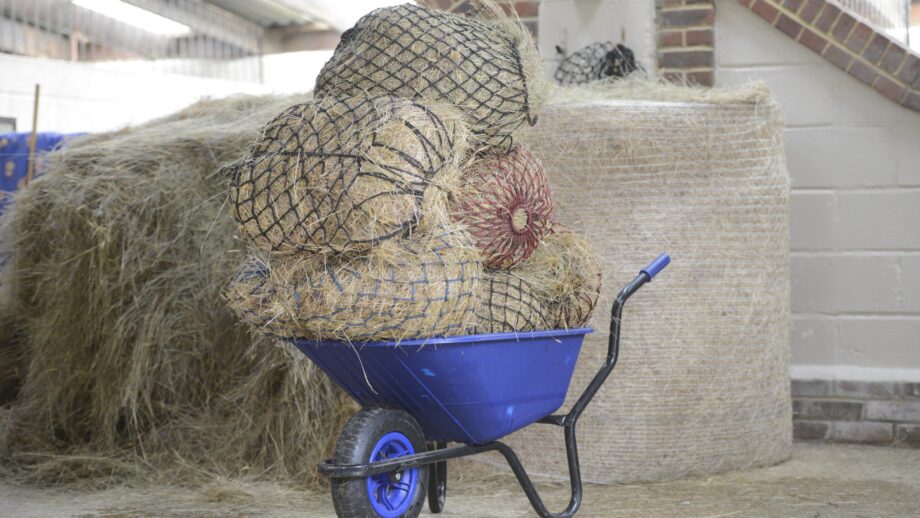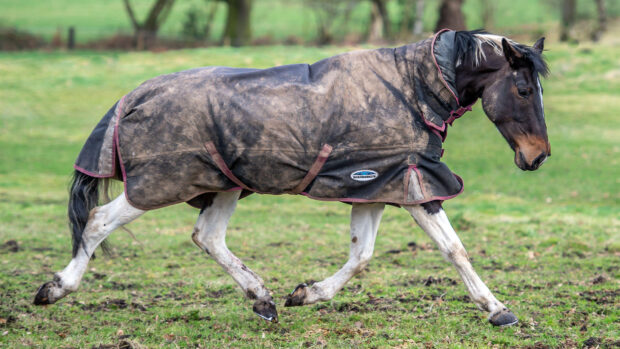Feeding your horse during the winter can be a challenge and many horse owners will be looking at how to save money on hay and reduce bills this year. No-one wants to over pay for their horse’s hay or haylage, and this year, with the reduced hay yield and increased prices, this is more front of mind than ever. We asked the experts how to get the most out of your horse’s forage without compromising their health and performance.
Fibre is essential for healthy hindgut function and the process of digestion helps to keep the horse warm. It also supplies slow-release energy and reduces the risk of colic in horses, so it’s important to ensure we are feeding enough fibre to our horses while searching for ways to reduce unnecessary expensive wastage.
How to save money on hay
1. Avoid waste
It sounds obvious, but don’t waste forage, whether it’s by overfeeding, not supplying in a varied enough form or by not presenting it to your horse properly. Hannah Briars of Winergy suggests: “Bring horses in from the field to eat or provide a field rack to prevent hay being wasted through trampling.”
There are plenty of small-holed haynets and slow feeders and that will help reduce waste simply by keeping it tidy and off the ground. They can also protect the nutrientlevels from decreasing due to exposure to bad weather.
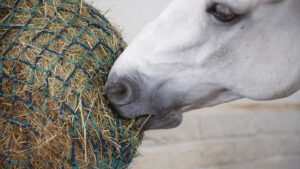
2. Make hay last longer
Horses need to eat around 1.5–2.5% of their bodyweight a day, and the majority of this should come from forage. However, some horses eat far more than they need to – and very quickly. If you’re giving extra hay purely to reduce the time they’re without, make use of small-holed haynets to reduce the speed your horse can eat at and make the same amount of hay last longer.
3. Use different types of forage
Katie Williams, head of nutrition at Dengie Horse Feeds, says: “Research has shown that offering a variety of fibre types – hay, haylage, chopped fibre – keeps stabled horses happy and stimulated. Offering a bucket of chopped fibre, such as Hi-Fi Original, with carrots and apples is a great way of increasing fibre intake and encouraging them to forage.”
Lizzie Drury, senior nutritionist from Saracen Horse Feeds describes this as “cafeteria-style” feeding and goes further: “Try offering a net of hay, another of haylage, a bucket of chaff and sprinkle high-fibre cubes in a pile of hay on the floor.”
Used with caution, good-quality oat or barley straw accompanied by plenty of water — and a watchful eye to ensure droppings are regular — can be used to make hay or haylage go further, especially for good-doers. But it is not recommended for a horse with a fragile digestive system and can cause impaction colic, so if you’re unsure then discuss this plan with your vet before introducing it.
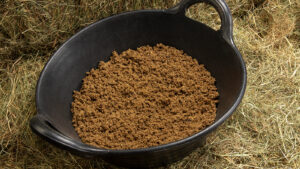
4. Consider hay replacers
Clare Barfoot of Spillers advises: “If you can’t find a reliable source of hay or haylage, hay replacers may be useful. These are chopped fibre-based products formulated to provide the same level of nutrition as hay or haylage and can be fed at up to 100% of the diet.
“Some contain vitamins and minerals, such as Spillers Happy Hoof, while others don’t, so it is worth checking with the manufacturer whether or not you need to add in a supplement.”
Hay replacers may appear expensive at first, but some are only designed to be a partial replacement. Our guide to the best hay replacers explains the differences and will help you identify a suitable option.
5. Investigate larger bales
Switching from traditional small bales, to larger bales of hay, could save you money in the long run. Unlike haylage, which will go off if not used quickly enough, big-bale hay will last and some merchants will wrap hay for clients if you need to store it outside.
6. Club together
If you do prefer to use haylage, clubbing together with other owners on your yard will help ensure you get through big-bale haylage fast enough to minimise wastage.
7. Buy from the field
If you can buy your hay straight from the field, and collect it yourself, this is likely to be is cheaper. The farmer may well give you a discount if you’re willing to save him the job of transporting it home.
Many farmers are prioritising loyal customers this year, but it’s worth trying if you’re able to transport.
8. Get your hay analysed
Hay and haylage don’t just differ in their moisture content; depending on the type and age of ley (mix of grass varieties) used, when it is cut (anything from May to late August) and the amount of time it “cures” before being baled, the nutritional value of your forage can vary, so it is worth getting it analysed so you know what you are feeding.
Once you have this information, speak to a nutritionist about your horse and you may find you can save money by reducing your horse’s hard feed.
You may also be interested in…

11 small-holed haynets and slow feeders to extend eating time and reduce wastage
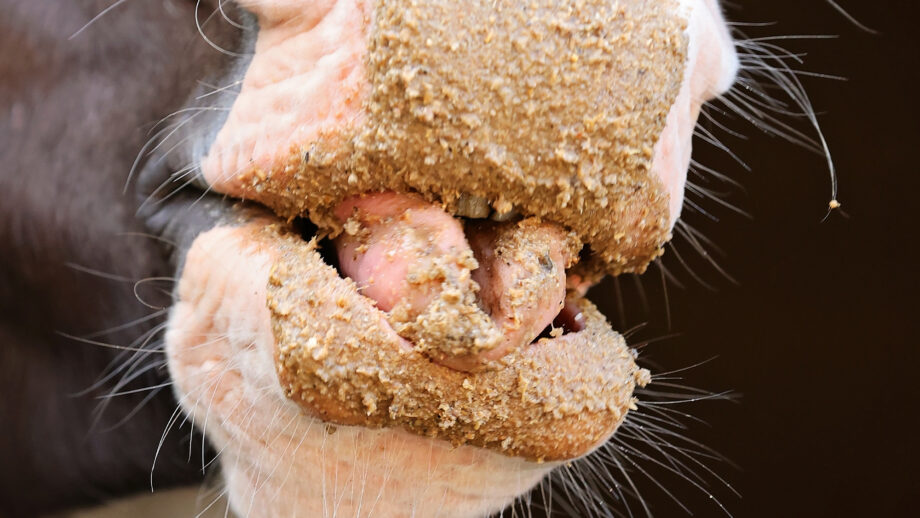
21 full and partial hay replacers to help add more fibre to the diet

How to save money on horse feed this winter without skimping

13 ways to save money on horse costs without compromising on care
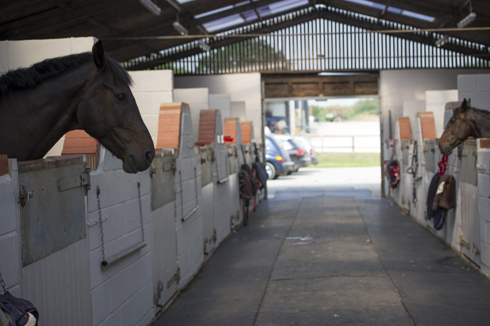
9 ways to save money on your horse’s bills

Subscribe to Horse & Hound magazine today – and enjoy unlimited website access all year round
Horse & Hound magazine, out every Thursday, is packed with all the latest news and reports, as well as interviews, specials, nostalgia, vet and training advice. Find how you can enjoy the magazine delivered to your door every week, plus options to upgrade your subscription to access our online service that brings you breaking news and reports as well as other benefits.

